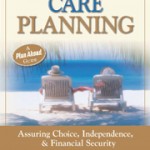As published in the Racine Journal Times | July 3, 2014
Is it likely you or someone you know will need help as they age? Have you done anything to prepare?
Fortunately, there are a number of actions you can take starting with making sure certain legal documents are in place, understanding the financial realities of the aging family member and identifying potential resources for care. Following these steps increases the likelihood you’ll be among those who are concerned about aging family members and doing something about it.
Two of the most important legal documents to sign before a person’s health deteriorates are the power of attorney forms for health  care and finances. Each of these documents identifies other people who can make decisions. While the health care power of attorney usually takes effect once someone has been deemed incompetent, the power of attorney for finances can follow this same route or it can be effective immediately when the document is signed.
care and finances. Each of these documents identifies other people who can make decisions. While the health care power of attorney usually takes effect once someone has been deemed incompetent, the power of attorney for finances can follow this same route or it can be effective immediately when the document is signed.
From a practical perspective, it’s important to consider whether to make the power of attorney for finances effective immediately or only when someone is incompetent. We have found that while someone may be legally competent, it can be very helpful to have someone else involved to pay bills or make other financial decisions which can only be done when the power of attorney is made effective immediately.
Another important step is to identify the financial resources available to pay for care. This is especially important if someone has long-term care insurance as these policies can be complicated. In particular, it’s important to understand the type of care covered by the policy (home health care, assisted living and/or nursing home), the eligibility requirements to begin receiving benefits (typically defined as “activities of daily living”) and the length of waiting periods (which can range from 90 to 180 days).
One of the most time-consuming yet helpful tasks is identifying potential care providers. Waiting until mom or dad breaks their hip is not the best time to find help. Besides the emotional pressure there is also the urgency to find a solution as quickly as possible. These conditions are not conducive to optimal decisions.
 Allen Hamm wrote “How to Plan for Long-Term Care” based on his experience taking care of his father and grandfather and the realization that few people plan in advance for something that is becoming more common every year. I encourage anyone interested in developing a long-term care plan to read Hamm’s book.
Allen Hamm wrote “How to Plan for Long-Term Care” based on his experience taking care of his father and grandfather and the realization that few people plan in advance for something that is becoming more common every year. I encourage anyone interested in developing a long-term care plan to read Hamm’s book.





